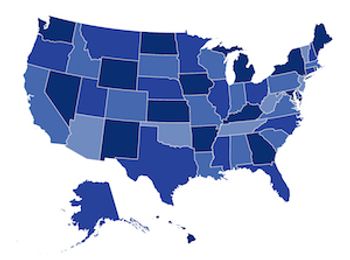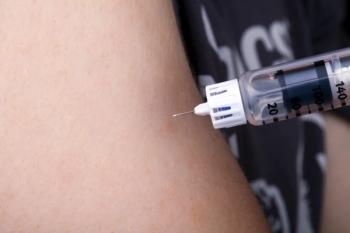
Diabetes
Latest News
Latest Videos

CME Content
More News

Every week, The American Journal of Managed Care® recaps the top managed care news of the week, and you can now listen to it on our podcast, Managed Care Cast.






This week, the top managed care stories included President Donald Trump signing an executive order requiring the poor to get jobs or lose food and healthcare benefits; a CMS report found ethnic, racial, and gender disparities in Medicare Advantage plans; CDC highlighted the impact of HIV on America's youth.

Papers from The Lancet's Taskforce of Non-Communicable Diseases analyzed the potential health and economic impact of implementing taxes on soda, alcohol, and tobacco to combat the rising rates of the chronic diseases worldwide.

Which state you reside in in the United States is a factor in your risk of suffering from disease, disability, and cause of death, according to the latest annual study that looks at 195 locations around the world. And while health has improved across much of the nation, some states saw stark rises in “diseases of despair,” with large increases in drug and alcohol use disorders, obesity, high body mass index, poor diet, and diabetes.

President and CEO Kevin Sayer said the company will file for Medicare coverage of the G6, while it continues to work out an issue that prevents beneficiaries from using a feature that lets data be displayed or shared on cell phones.

Every week, The American Journal of Managed Care® recaps the top managed care news of the week, and you can now listen to it on our podcast, Managed Care Cast.

This week, the top managed care news included final numbers for 2018 enrollment in Affordable Care Act plans; an increase in Medicare Advantage payments; National Public Health Week highlighted the importance of community relationships in improving health.

Sanofi, 1 of 3 drug manufacturers embroiled in a lawsuit involving insulin prices, said Thursday it is offering a discount program for some patient with diabetes who are uninsured or who have high-deductible insurance plans.

Rapid progression of diabetes complications was associated with higher risk of severe hypoglycemia.

The insurer's chief medical officer reports that the CDC metric is proving useful over time.

Some Medicare Advantage plans may not be fully ready for the requirements of this history-making preventive service.

A commentary from our editor-in-chief on the recent guidance from the American College of Physicians regarding glycemic control for adults with type 2 diabetes.

This study evaluated a pharmacist-managed diabetes clinic to determine its impact on diabetes-related quality measures.(For Tables and Figures, please access the PDF on last page.)

Enrollment, claims, and spatial data are used to demonstrate the importance of outreach strategies for families in rural areas who have children with diabetes. Spatial barriers, alone, do not fully elucidate racial/ethnic disparities in pediatric diabetes for street-level location. (For Tables and the Figure, please access the PDF on the last page.)

Every week, The American Journal of Managed Care® recaps the top managed care news of the week, and you can now listen to it on our podcast, Managed Care Cast.

Science 37 hopes to help researchers produce clinical trial results that are closer to real-world experiences, for the benefit of patients, pharma, and payers.

Missed sessions are the obvious place where digital programs can find a place in the launch of Medicare's first fully reimbursed preventive service.

After taking recommendations from providers, Mississippi lawmakers pass a bill that would end caps on prescription drugs and office visits in Medicaid.

This week, the top managed care stories included another insurer announcing it would pass on drug rebates to consumers; FDA approved a new continuous glucose monitor and created a new medical device class; new guidelines address how to treat people with both HIV and cancer.

With Medicaid consuming a larger share of the Mississippi's budget, innovative solutions were needed to deliver improved health outcomes at a lower cost. A public-private partnership was created to pursued a population health strategy aimed at reducing preterm births and preventing the progression of prediabetes to type 2 diabetes.

















